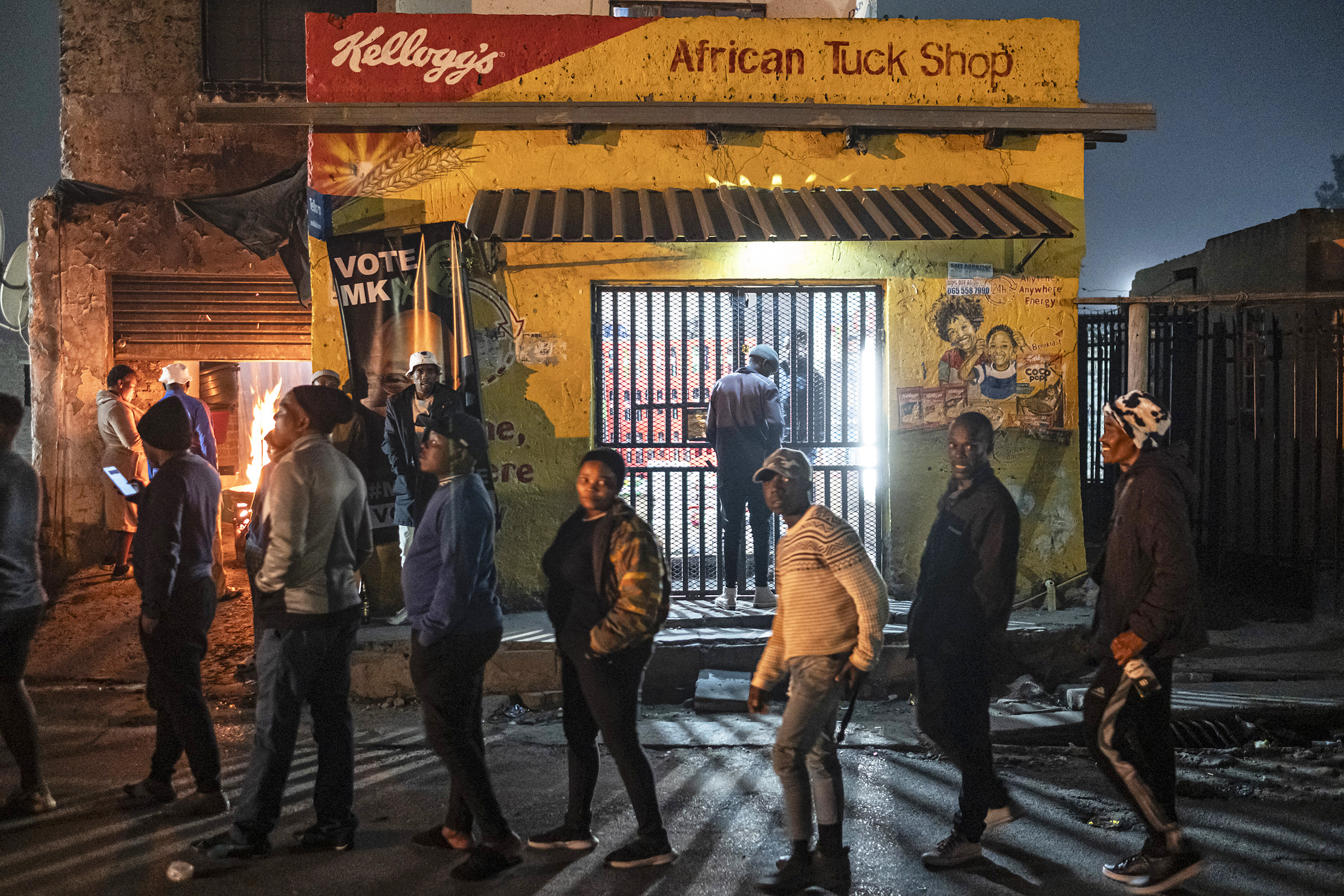As the results of South Africa’s sixth general elections were being announced on Sunday evening, Cyril Ramaphosa looked like he was working hard to project a sense of composure. With the African National Congress failing for the first time since 1994 to garner the 50 per cent required to govern alone, he took to the podium and calmly accepted the results, saying, “Our people have spoken, whether we like it or not, they have spoken.” Given the circumstances, Ramaphosa gave a stellar performance.
South Africans had high hopes in 2018 when Ramaphosa took the presidential reins from Jacob Zuma, whose nine years at the top were marred by a succession of scandals. Six years later, as Ramaphosa turned on his trademark charm in an attempt to soothe investors worried that his party’s rapid decline would set off political instability in African’s largest economy, much of that hope was dead.
Ramaphosa may be suave, but he has done little to tackle the scandals that have wracked him and his party. Under his watch, the ANC government has also failed to deal with the country’s most pressing problems: rampant unemployment (now at an all-time high of 35 per cent), high rates of crime and regular electricity blackouts.
Voters punished the ANC accordingly, pushing its share of the vote down from 57 per cent in 2019 to just 40 per cent. The party’s decline was accelerated by the sudden and spectacular rise of the uMkhonto we Sizwe Party, or MKP, an upstart party launched less than six months ago and backed by Jacob Zuma.
Contesting its first elections, the MKP attracted nearly 15 per cent of the national vote, largely because of Zuma’s Trump-like personal popularity, and his appeals to Zulu ethnic loyalties. It also stole voters from the Economic Freedom Fighters, which managed to secure 9.5 per cent of the vote. The official opposition, the Democratic Alliance, or DA, attracted 21.8 per cent, only a slight rise from its 2019 figures, despite being the biggest beneficiary of donor support from the business sector.
The ANC will now have to form a government either in coalition or via a confidence and supply agreement with another party. The choices are stark but fraught.
The MKP — whose leader, Zuma, is known to harbour deep resentment against Ramaphosa and the ANC — has indicated it will only work with the ANC if Ramaphosa steps down. “No political party will dictate terms like that to us,” the ANC’s secretary-general declared in response.
An ANC–DA coalition would appease investors, largely because the DA is seen as business friendly. But some argue that such an alliance would be political suicide for the ANC, which has long struggled to shrug off accusations that it has sold out to white business interests and betrayed an impoverished Black majority. The DA has long hammered the ANC for corruption and has often been criticised for using racial tropes to appeal to its white base. Importantly, it is opposed to key ANC policies, including the Black Economic Empowerment program that gives preferential treatment to historically disadvantaged business owners, and the plan for a universal national health insurance scheme. Nor does the DA support moves to speed up land redistribution, which the ANC has increasingly been called on to enact.
An alliance with the Economic Freedom Fighters, on the other hand, would cause concern among local and global investors. The party wants land expropriated without compensation and supports the nationalisation of South Africa’s mines — calls that have been endorsed by some in the ANC. Still, its leader Julius Malema is popular among young people, and as the former head of the ANC’s youth league he has wide networks within the larger party.
It is telling that the ANC could conceivably work with parties as different as these. In some ways, its capacity to go in either direction — towards the DA or towards the more radical parties — speaks to the problem that has led to its decline.
In attempting to be all things to all South Africans, the ANC has lost political coherence. Its capacity to tolerate and manage difference was once its biggest strength. As election results show, the party that once worked to bring together a broad coalition on the basis of a shared set of values seems to have lost its mojo.
As far back as the 1940s, the ANC saw itself as a broad church. During that decade, the political movement expanded significantly, first by admitting women as members and then by establishing a Youth League. These two groupings drove the party’s expansion over the next few decades, helping to shape the non-violent resistance campaigns that became a hallmark of the anti-apartheid movement in the 1980s.
By the time Mandela was released from prison in 1990, the ANC had gained global renown for its sophisticated approach to coalition-based politics. The party had a remarkable capacity to unite religious groups, trade unions, educational institutions and a range of others, all under the rubric of a single cause. The call to end apartheid provided a vital rallying cry and drove the momentum that culminated in the ANC’s historic win in the 1994 elections.
Once the ANC stopped being a liberation movement and became a political party it had to grapple with new and complicated tensions. As it sought to build a new society, it had to take positions that some of its members didn’t like. Where there existed genuine policy differences over the economic direction, the party initially worked hard to consult. But as senior leaders increasingly became mired in corruption scandals, the core values that bound the various factions together began to fray.
With trust in its leaders declining, the ANC continued to claim that it brought together black billionaires and poor rural women, communists and capitalists, traditionalists and feminists. It persisted in describing itself as “a multi-class movement with a strong bias to the working class and the poor.”
Yet it was obvious that its leaders had lost touch with the living circumstances of its poorest members. The ties that had once bound ANC leaders to their constituencies — trust and moral credibility — had loosened and the party was operating less as a broad church than as a dysfunctional collection of special interests held together by history. It is unsurprising that the era of ANC dominance is coming to an end. For thirty years, South Africa’s prospects have been determined by the state of the ANC. If the ANC sneezed, the country caught a cold.
As the negotiations for a unified government begin, it is far from clear who will govern South Africa over the next few years. What is clear is that for the first time in thirty years the ANC’s prospects will be determined by the people, rather than the other way around.
With the electorate firmly in the driver’s seat, I am reminded of the opening words of the Freedom Charter that guided the ANC for its eighty years as a liberation movement: “The people shall govern.” The ANC is learning just how prophetic these words have turned out to be. •




